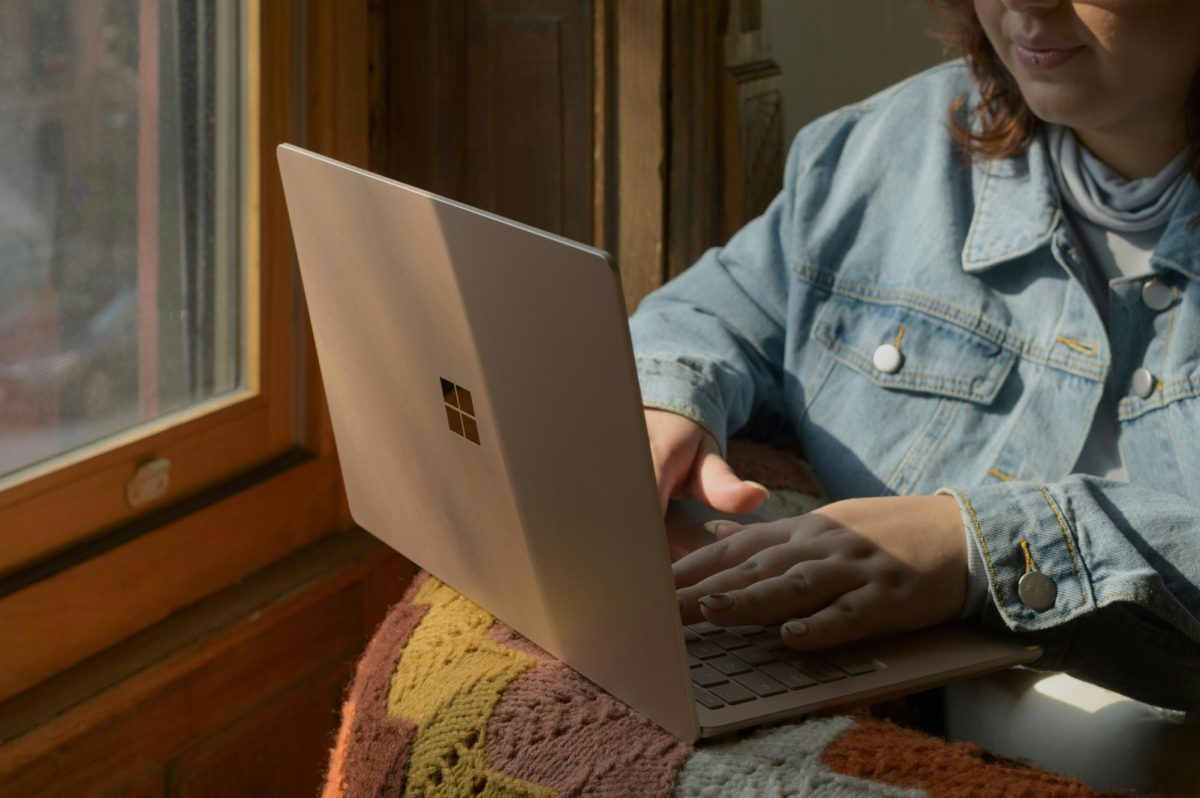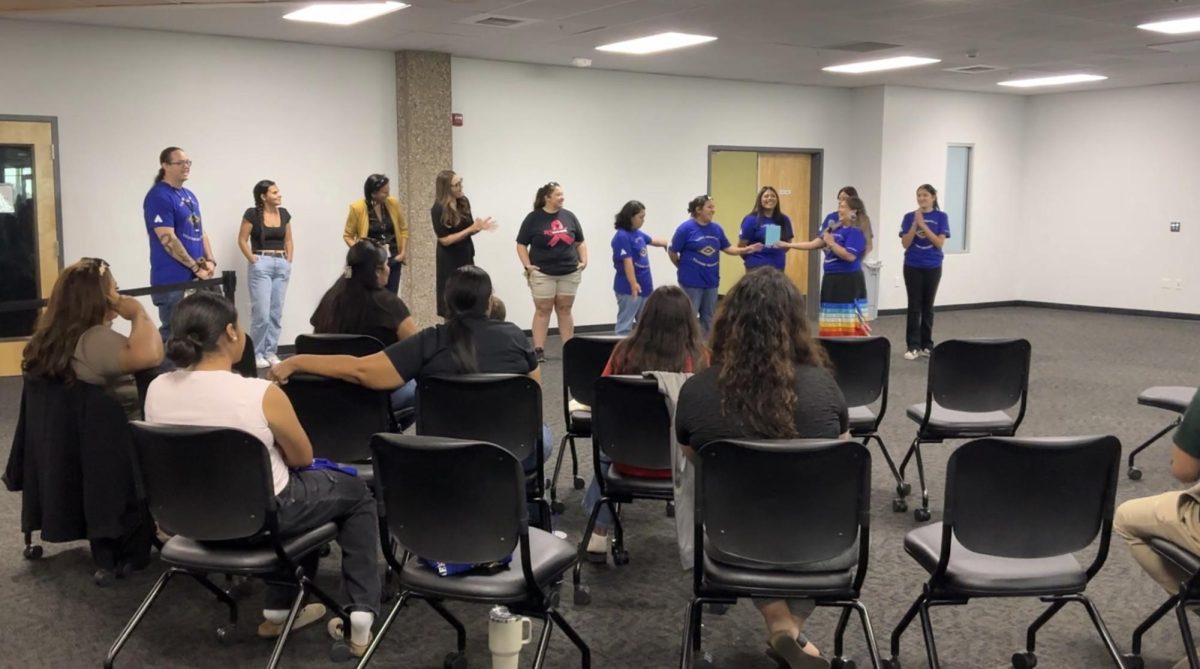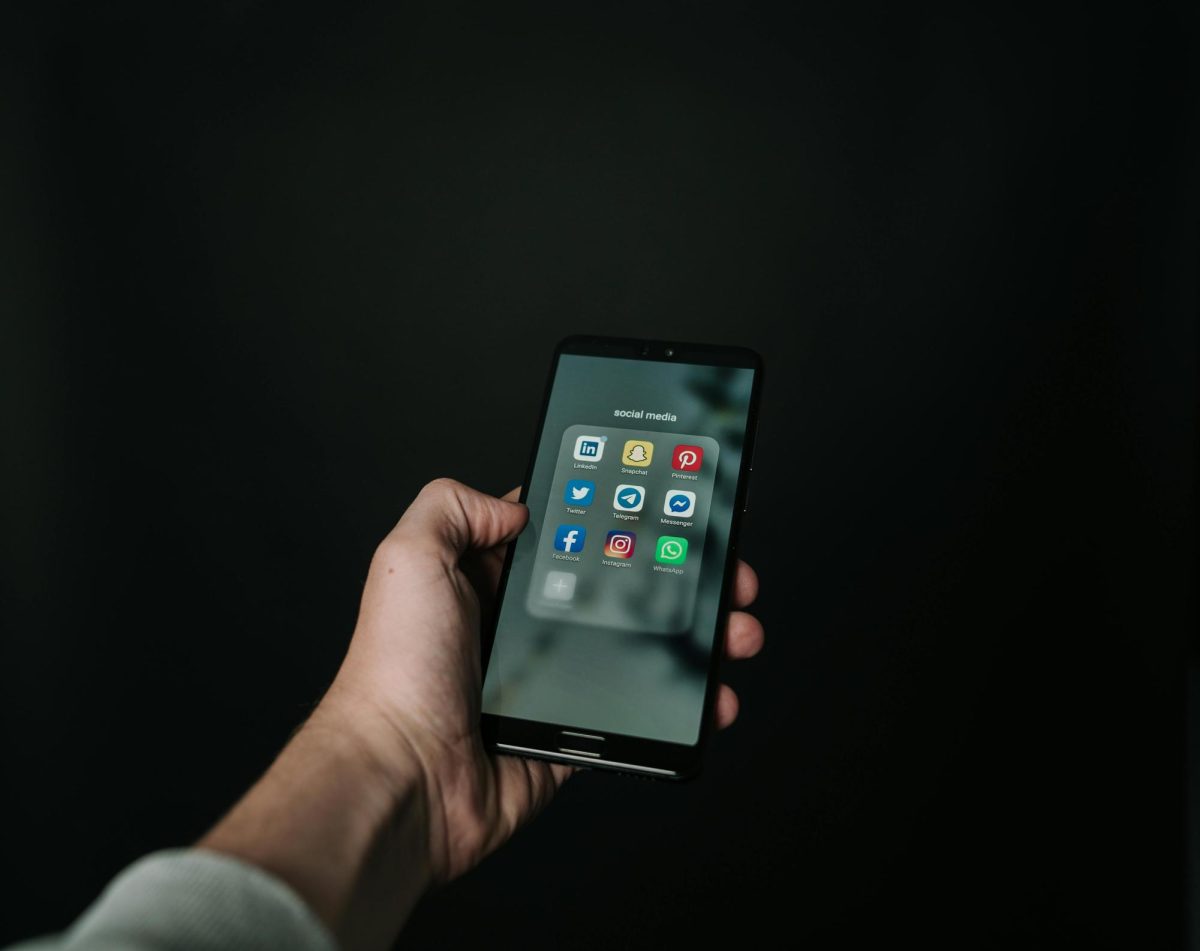It goes without saying that screen usage is one of the most important issues facing college students today. Screen time affects sleep, soft skills, and mental and physical health. College students need these factors to function properly throughout their studies. Therefore, college students should reduce screen time to succeed in school and life.
Screen usage has become an overwhelming addiction for most college students, which has come with great disadvantages from health to creativity. Pediatrics and medicine professor Thomas Robinson alerts, “Over the course of months and years, those hours accumulate to something that has a major impact on health and development.”
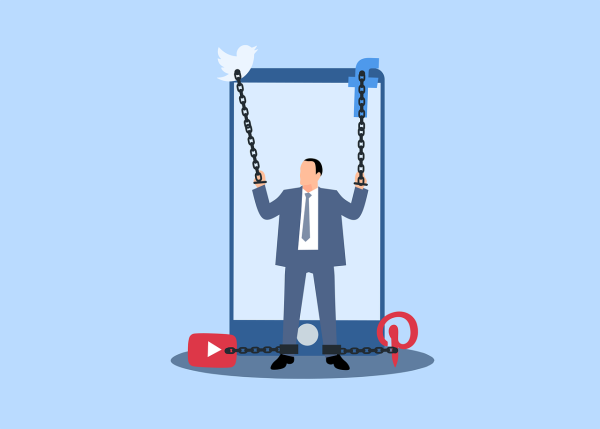
Along with this Harvard healthcare communicator, Debra Brandle Ruder’s research states young minds lack self-control, which results in obsessive behavior. The image to the left demonstrates the obsessive control. This leads to long-term addictions that deprive brain development. This information makes it easy to understand that screen addiction is most definitely the cause of unproductivity, sleep loss, and poor health. This problem must be solved for college students to thrive in their chosen careers.
Besides blue light and mindless scrolling, there are many healthier alternatives to feed your mind.
According to a family physician of Mayo Clinic Health System Mysoon Ayuob, participating in physical activities, adventures, exploring, socializing, and community participation can benefit your mind and health. Check this newspaper for updates on local events.
College students will resort to bingeing the latest TV show or scrolling through social media for comfort; however, it is proven to be beneficial to find more brain-neutering activities instead. For example, going for a bike ride to a local park when feeling overwhelmed or connecting with the college community by joining a club or activity to ensure a sense of belonging. Mysoon Ayuob includes, “We often miss out on the fun and beauty happening around us because of screens.”
College students feel the most anxiety and depression during their studies; having an electronic addiction does not help this case; in fact, it only worsens. Taking part in physical and social activities is the perfect way to decrease college students’ anxiety and depression. Activities outside of screens seem easy enough; however, there are in-depth steps needed to achieve this status.
It is almost impossible to completely stop using electronics as college students; this being known, there is a more gradual approach to be taken.
Health journalist Michael Mershel provides an in-depth guideline to help enforce a better standard for college students’ screen usage. The first step is to “be realistic and aware” by finding the number of hours spent on electronics weekly and creating a new ideal goal of 2-4 hours each day. Then “think about what will fill the gap” and use methods included in the previous article provided by Mysoon Ayuob, such as painting or meditating. Next, “get tech support” by using ‘screen usage’ provided on most phones and setting app restrictions. And lastly, “make it personal.” Most college students will know certain days they might need their electronics longer for studying or face time with family. Making their schedule of screen time personal can make sure these moments are enjoyed.
Many college students will argue that screen time is needed. Homework, studying, connecting with loved ones, and creativity are done on electronics. This is true; however, the argument is to only decrease screentime, not completely remove it. Using screen time in reasonable measurements can lead to success and better health.
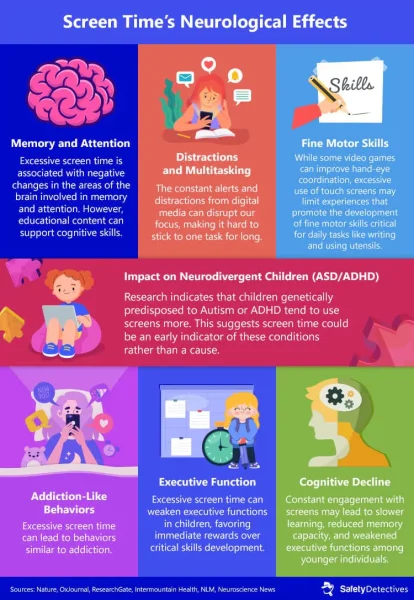
However, if used too much and for the wrong reasons, very serious consequences will take place. The infographic provided explains several screen time neurological effects. Along with this, the usage of screen time can lead to insomnia.
Neurologist Jesse Mindel of Ohio State Wexner Medical Center states, “At night, exposing your eyes to the artificial light that screens put off can hinder your sleep as well as your alertness and mood the next day. Nighttime light exposure can trick our brain’s master clock into thinking it’s daytime, which in turn can slow the body’s production of melatonin, a hormone our brain produces that helps us sleep.” Although screen time is needed for education, it does not need to be used at all times.
Ultimately it is clear that college students should reduce their screen time to succeed in school and life. With the risks of poor mental and physical health, lack of sleep, and loss of socialization, college students should be more willing to endure change. No better time to start than today. Use the guidelines provided and start the journey of self-improvement.



